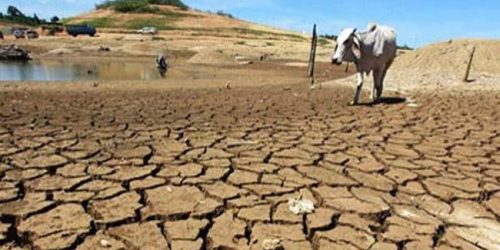The sudden disruption to our lives caused by coronavirus forewarns of the havoc which can be unleashed by impending climate related disasters. The varied impacts of climate change are already being experienced, and are expected to get worse, if the world does not get its act together. In fact, some underlying causes of climate change such as deforestation and factory farming have also enabled pathogens to mutate and transmit more readily across species, whereby increasing the risk of pandemics such as Covid-19.
While Pakistan still contributes an insignificant proportion to global emissions, it is the fifth most vulnerable country to climate change. We have seen climate change causing more severe droughts, recurrent floods, and increasing water scarcity. However, the most severe consequences of climate change are yet to come. The need to pay more attention to mitigate against impending climate threats and take steps to address their underlying causes thus remains vital.
Prime Minister Imran Khan recently addressed the virtually held Climate Ambition Summit organised by the UN to mark the fifth anniversary of the Paris Agreement. PM Imran Khan took the opportunity to apprise the international community of efforts being made by Pakistan to mitigate the effects of climate change via his party’s tree tsunami project and Green Pakistan initiative. Moreover, he put forth ambitious targets like obtaining 60% of the country’s energy from ‘clean’ and renewable resources within a decade. He also wants 30% of the country’s vehicles to be using electricity by 2030. These are lofty goals, and one wonders if Pakistan will come anywhere near achieving the stated targets over the next decade.
Pakistan’s total forest cover is very low for our region, and well below UN recommendations. While environmental NGOs have praised the current government’s tree plantation drive, the judiciary, including the Supreme Court, has asked the PTI government to provide evidence of its claimed 10 billion tree tsunami. The government’s announcement to increase the number of national parks and other protected areas is also welcomed. Yet, the government seems keen to push through environmentally controversial urban development projects such as Ravi City and Bundel Island.
Moreover, we saw the return of smog season again this year to major Punjabi cities, including Lahore. Besides lack of emission inspections, the use of substandard and adulterated fuel is a major culprit in making the air in big cities increasingly unbreathable. The PTI government has pressed ahead with the expensive metro rail system in Lahore, as well as with metro bus projects in other big cities, but the problem of traffic congestion remains undeterred. The Minister of Climate Change had announced that the quality of fuel will be shifted from Euro 2 to Euro 5. Apparently, the first shipment of Euro 5 diesel recently reached Karachi, and one of the five refineries in the country is reportedly switching to Euro 5 technology. We are still quite away from allowing only Euro 5 fuel to be available, even in smog-hit areas.
Pakistan had opted for cheap energy via coal-powered projects under CPEC. Whether Pakistan will be able to pay for converting coal projects to cleaner energy remains to be seen. There are some emergent sources of international support that Pakistan can try to harness for addressing climate change.
The fact that John Kerry (former senator and co-architect of the Kerry-Lugar Bill) has been made Biden’s Climate Envoy signals the resolve of the incoming US administration to tackle climate change seriously. Cooperation on climate change is one of the few issues on which we may see some cooperation between China and the US, which will otherwise remain locked in a strategic rivalry over the coming years. This is a good time for Pakistan to approach the US with a list of green projects, including those which can complement CPEC.





